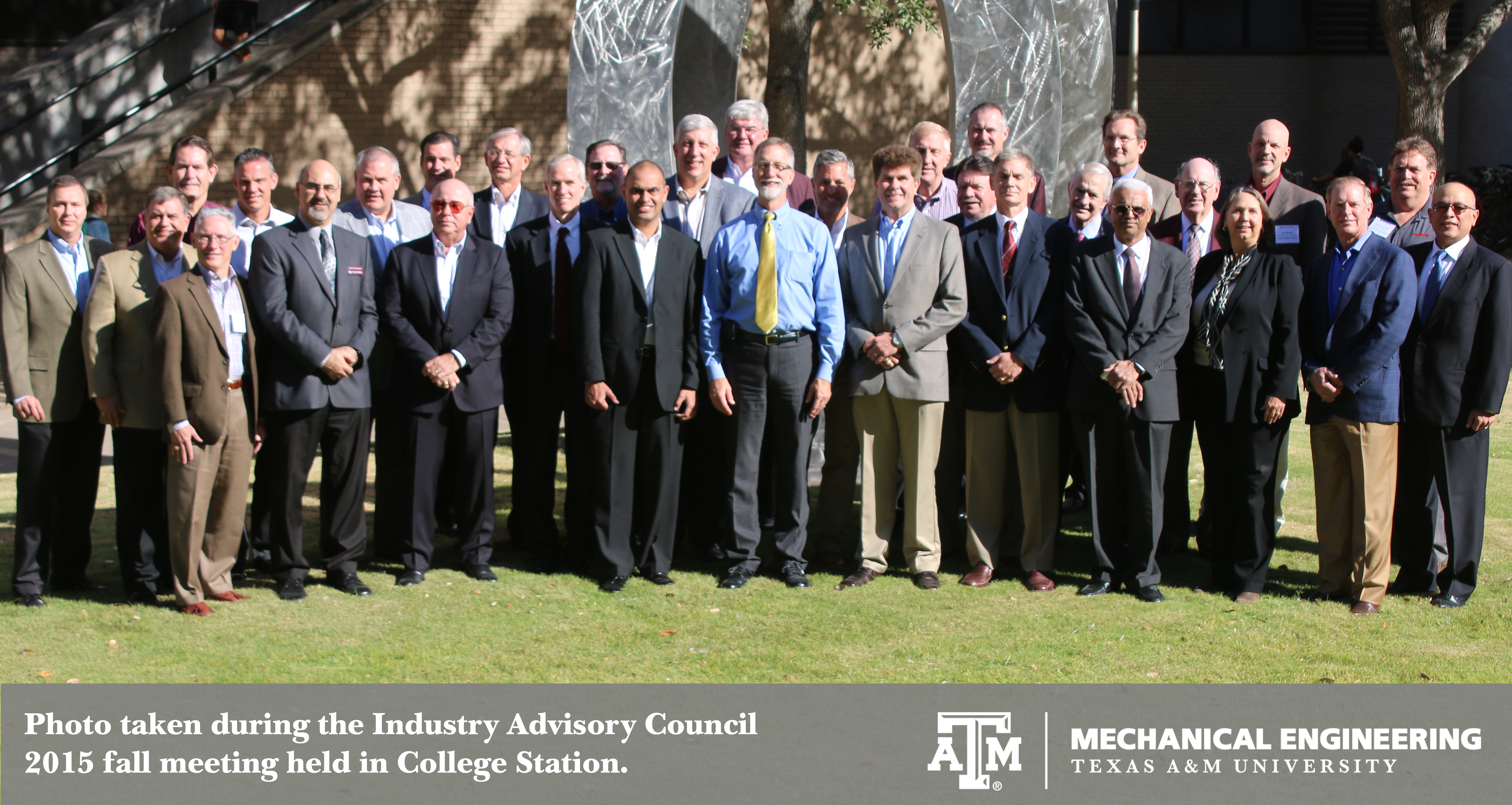According to the United States Department of Labor the average expected salary of a mechanical engineer is $80,580 per year. In fiscal year 2014, the Department of Mechanical Engineering at Texas A&M University issued 349 degrees to students who completed the rigorous curriculum.
The mechanical engineering department works diligently to ensure its students understand the fundamentals and principles of engineering they will be tasked with knowing as they transition into their professional careers.
To foster idea exchanges between academia and the industries in which its students work, department leadership and key faculty members meet bi-annually with the mechanical engineering department’s Industry Advisory Council (IAC), which is comprised of graduates who have proven track records with various industries. The IAC consist of 30 to 35 former students who volunteer their time to keep the department informed of the challenges they face each day in their respective fields.
Members of the IAC are selected for their leadership, accomplishments and willingness to support the mission of the council, which is to support the department and mechanical engineering students.
Quentin Baker, Industry Advisory Council chair said, “The IAC is a valuable asset for the department, as our mission is to provide a real world connection to the challenges the engineering profession is facing. The IAC proactively supports the department in research networking and resource development. During our meetings we enjoy interacting with mechanical engineering students, and we work diligently to provide support to student engineering organizations that desire industry sponsorship.”
During the event the council breaks out into four sub-committees to discuss subjects such as current student development, faculty and industry partnerships, current goals of the department and former student engagement.
Brenda Hightower IAC member said, “We do a really good job of reaching out to our former students and alumni and keeping them engaged through the foundation. It’s our goal in the IAC to improve on the relationship with all of our mechanical engineering graduates regardless of if they graduated in 2015 or 1915.”
As part of the IAC’s bi-annual meetings Dr. Andreas Polycarpou, head of the Department of Mechanical Engineering, outlines the department’s current goals and interacts with the members throughout the day.
“Interacting with the IAC allows me to ensure our department is truly preparing students for the challenges they will face in their engineering professions,” said Polycarpou. “It’s also a time for us to highlight the achievements and successes of our faculty, staff and students as we strive to be a preeminent mechanical engineering department.”
The IAC meeting concluded with a tour of the new collaboration space recently opened in the James J. Cain ’51 Building. The space offers students resources such as multiple electrical outlets installed near couches and chairs, dry erase white boards and Bluetooth enabled monitors. When the space is completed the project presentation space will have enough room for students to present industry-sponsored projects for classes such as Mechanical Engineering 401, 402, or 404.
“It was imperative we show the IAC members this space,” Polycarpou said. “This a phenomenal example of the department understanding students must have adequate space to present their engineering projects to their industry sponsors.”

For more information on the IAC contact:
Jeremy Quast
Director of Development
979.862.1517
jquast@txamfoundation.com
Or
Annette Forst
Assistant Director of Development
979.862.7837
aforst@txamfoundation.com